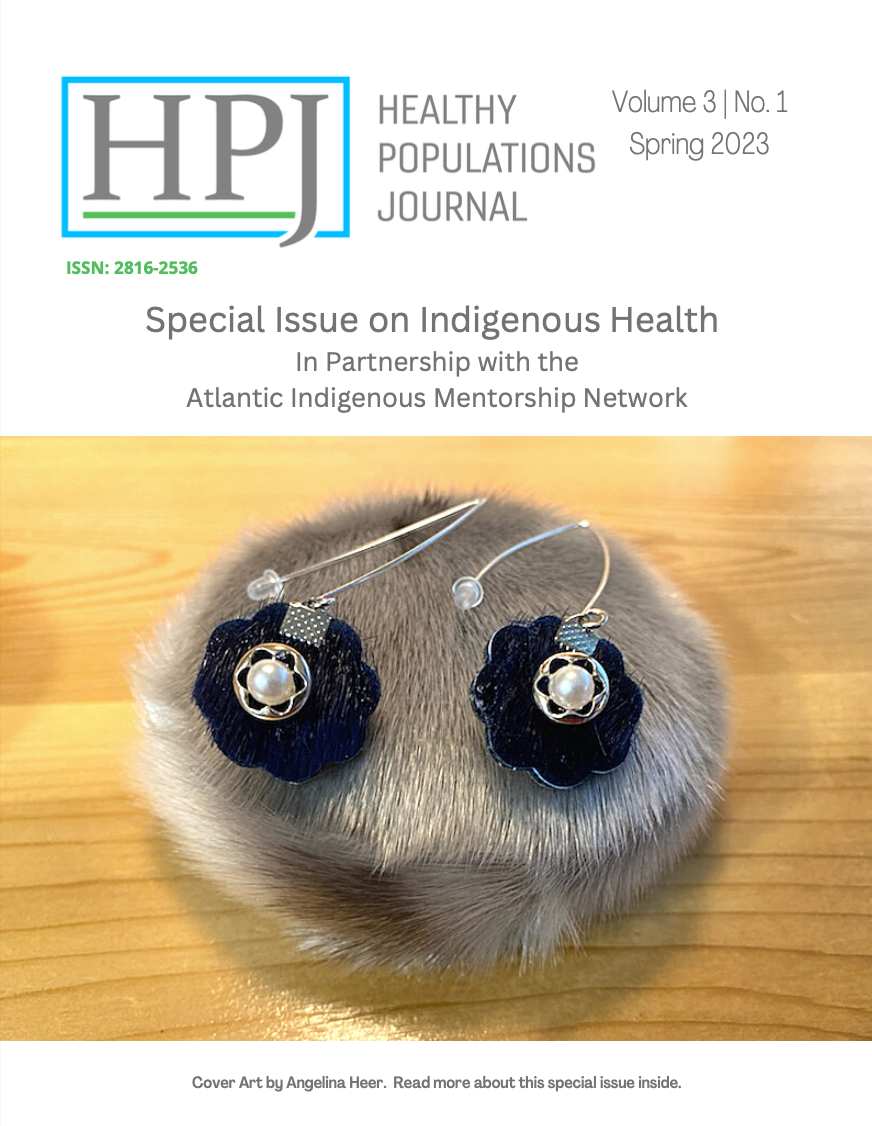Ethical Considerations in Population Health Research With Vulnerable Communities and the Added Value of Community-Engaged Methodology
DOI:
https://doi.org/10.15273/hpj.v3i1.11481Keywords:
food insecurity, water insecurity, ethnography, stressAbstract
Working among vulnerable communities poses unique ethical challenges when conducting biocultural research. When communities face dire poverty and social injustice, simply observing and documenting stressors and related health outcomes may be considered exploitative by vulnerable and already overburdened residents. As biocultural researchers, our responsibility is to work toward solutions addressing differential impacts of social injustice. Here, we highlight work amongst the Comcaac, an indigenous group native to Sonora, Mexico. Today, they experience significant resource insecurity secondary to historical marginalization and structural violence. Employing ethnographic methods (participant observation, focus groups, unstructured and semi-structured interviews), we investigated social and ecological stressors likely affecting members‘ health. First, we determined visible themes encompassing resource insecurity (e.g., water, food, power, medicine etc.) and struggles with poverty, racism, and associated feelings of injustice. Through deep engagement, we also discerned community members‘ frustrations with what they see as exploitative research – obtaining information but failing to work actively toward solutions or remain invested in participants‘ well-being. To begin addressing their most severe issues, we first documented substantial needs within the community, then obtained outside donors and organized a weekly food bank delivery of fresh foods. Now, these are distributed weekly by community leaders in culturally appropriate and locally embedded ways. Thereby, we were able to address an immediate need in a manner that will have continuing impact even while not actively conducting fieldwork. To have real meaning for our research communities, as biocultural researchers we must create ethically based long-term relationships to develop meaningful scholarship.
References
England, K. V. L. (1994). Getting personal: Reflexivity, positionality, and feminist research. The Professional Geographer, 46(1), 80–89. https://doi.org/10.1111/j.0033-0124.1994.00080.x
Esparza-Romero, J., Valencia, M. E., Urquidez-Romero, R., Chaudhari, L. S., Hanson, R. L., Knowler, W. C., Ravussin, E., Bennett, P. H., & Schulz, L. O. (2015). Environmentally driven increases in type 2 diabetes and obesity in Pima Indians and non-Pimas in Mexico over a 15-year period: The Maycoba Project. Diabetes Care, 38(11), 2075–2082. https://doi.org/10.2337/dc15-0089
Martànez-Tagüeña, N., & Renteràa-Valencia, R. F. (2020). Social cohesion and environmental governance among the Comcaac of Northern Mexico. In S. Lucatello, E. Huber-Sannwald, I. Espejel, & N. Martànez-Tagüeña (Eds.), Stewardship of Future Drylands and Climate Change in the Global South (pp. 321–335). Springer. https://doi.org/10.1007/978-3-030-22464-6_18
Monti, L. S. (2003). Seri Indian adaptive strategies in a desert and sea environment: Three case studies. A navigational song map in the Sea of Cortes; the ironwood tree as habitat for medicinal plants; desert plants adapted to treat diabetes [Doctoral dissertation, University of Arizona]. UA Dissertations Collection. https://repository.arizona.edu/bitstream/handle/10150/280316/azu_td_3090003_sip1_m.pdf?sequence=1&isAllowed=y
Pacheco-Vega, R., & Parizeau, K. (2018). Doubly engaged ethnography: Opportunities and challenges when working with vulnerable communities. International Journal of Qualitative Methods, 17. https://doi.org/10.1177/1609406918790653
Ravussin, E., Valencia, M. E., Esparza, J., Bennett, P. H., & Schulz, L. O. (1994). Effects of a traditional lifestyle on obesity in Pima Indians. Diabetes Care, 17(9), 1067–1074. https://doi.org/10.2337/diacare.17.9.1067
Robles-Ordaz, M. D., Gallegos-Aguilar, A. C., Urquidez-Romero, R., Diaz-Zavala, R. G., Lavandera-Torres, M. G., & Esparza-Romero, J. (2018). Prevalence of prediabetes and modifiable factors in an ethnic group of Mexico: The Comcáac Project. Public Health Nutrition, 21(2), 333–338. https://doi.org/10.1017/S1368980017002658
Villela, G. J., & Palinkas, L. A. (2000). Sociocultural change and health status among the Seri Indians of Sonora, Mexico. Medical Anthropology, 19(2), 147–172. https://doi.org/10.1080/01459740.2000.9966174
Downloads
Published
Issue
Section
License
Copyright (c) 2023 Alexandra Christianne Tuggle, Douglas E. Crews

This work is licensed under a Creative Commons Attribution-NonCommercial 4.0 International License.
The journal aims to reduce barriers to publishing and sharing research and inequalities to accessing information.This journal provides immediate open access to its content on the principle that making research freely available to the public supports a greater global exchange of knowledge. The open-access nature of the journal means that there will be no charge for authors or readers to use the journal. The journal has a Creative Commons Attribution Non-Commercial (CCBYNC) attribution which allows the author (and others) to share and distribute their full-text article in other public domains, such as Google Scholar or Research Gate.

